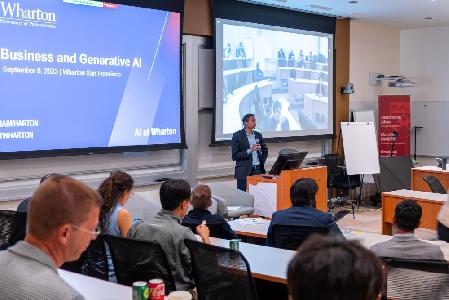
This editorial article is a part of Tech Career Paths Month of Technical.ly's editorial calendar.
Job searches can be stressful. Job searches during a pandemic can be worse.
Those looking for tech work right now might be having a slightly easier time of it than job seekers in less resilient industries: The IT unemployment rate for January stands at 2.4% compared to a national rate of 6.3%. Tech sector employment was up in January, compared to the previous five months and on par with January 2020 numbers, according to the latest CompTIA monthly tech jobs report.
Tech sector job postings have been down overall since March 2020, when the pandemic froze the U.S. economy, but increasing more recently: More than 78,000 IT roles were added across all sectors in January, CompTIA reported.
That doesn’t mean it’s easy, though, and competition for junior-level software roles may be more intense than ever: A June 2020 Glassdoor Economic Research study found that entry-level job postings were down 68% from the previous year, while technical roles such as for software engineers and data analysts saw the most job applicants from recent grads.
It’s an appealing industry for many because salaries can be lucrative: In Philadelphia, pay for a mid-level full-stack software developer can start around $75,000 and around $127,000 for a senior-level full-stack software developer. And for new technologists across the U.S., the tech industry is seen as a solid career option for those whose roles were eliminated during the pandemic, or who are embarking on the tech job search for the first time. The barrier to entry can be lower, too, as it’s now commonplace to talk about how getting started in tech doesn’t require a college degree.
Still, even in a generally growing industry, the matter of attaining a job can be difficult for people with non-tech backgrounds or less formal education.
Here, see what four new technologists and one recruiter said it’s like to look for a tech job right now. Some of their experiences reflect recent shifts caused by the pandemic; some exemplify longstanding challenges for newcomer coders.
The career changer
Based in Los Angeles, Priscilla Peralta considers herself fairly new to tech and is in the middle of a career change at a tumultuous time. After losing two separate jobs due to the pandemic in the last year, she found online classes for coding that appealed to her. She was already familiar with Adobe Creative Cloud because of her arts and entertainment background and became more motivated after taking a free mini bootcamp class. Since then, she has designed and coded her own portfolio while continuing her job search.
Peralta has been using the Philly-based Tribaja and its Slack group as a job-search resource. She’s found that the most difficult part of looking for opportunities has been deciphering the ambiguity of tech job descriptions relative to her own skill set, and staying consistent in applying for work.

Priscilla Peralta. (Photo via LinkedIn)
“What one junior designer does at one company can be totally different at another even if they have the same title,” she said. “Some roles might ask for only HTML and CSS but others might also want JavaScript. [Another challenge is] stamina, just keeping up a pace to look every day and take your time when applying. It’s really easy to quickly turn into a robot.”
Gaining feedback from hiring managers or recruiters at tech companies has been extremely helpful, Peralta said. As someone pivoting into a new career path, learning who she should contact about a role from recruiters and where they are in the process of hiring for a role helps her keep track of her applications. She made a spreadsheet to track where she applied, who she spoke to, whether she heard back from that person — and if she hasn’t heard back, she follows up again.
Peralta said having patience is necessary when seeking a job during the pandemic. Extra attention must be paid to mental health.
“There is so much added pressure to have it all together right now, but make sure that you are listening to yourself,” she said. “If you’re struggling, pause, review, take a break and try again,” she said.
The bootcamp grad
Joshua Negron recently landed a role as a technology associate with Liberty Mutual and credits the preparation that came from his tech bootcamp for his success: He’s a Boston graduate of Resilient Coders, which is expanding to Philly this year. Negron moved to the United States from Puerto Rico when he was younger; English isn’t his first language. As a Latinx jobseeker, he said that he had to be 10 times as good to get a job in a competitive tech job market.
“It’s hard,” he said. “Especially when you come from where I come from. My last name is Negron, they see I’m Latino and that I don’t have the bachelor’s degree. It’s a double risk for the company.”

Joshua Negron. (Courtesy photo)
To better set up its graduates for success, Negron said, Resilient Coders provides them with job leads before they finish the program. As someone who got nearly 100 leads, he didn’t initially have an idea how difficult his job search would be. He ended up only getting five responses and remembers the process being stressful.
Of those five leads, one led to a phone screener, a technical assessment and ultimately, a job with Liberty Mutual.
Negron had attended Northeastern University for a time before high tuition costs caused him to leave college. In his job search, he found that candidates with bachelor’s degrees in computer science are prioritized in the job market — even if their skills are not equal to his as a bootcamp graduate.
Having the skills to perform the job is something that Negron believes is more important than the theory that comes with a college degree (something Technical.ly has heard from several technologists interviewed for our How I Got Here series).
“At the end of the day, you need practical knowledge of building a web application,” he said. “Software engineering is not about theory, it’s about practice. That’s the really important thing.”
The recruiter
Work has actually picked up recently for Delaware County-based tech recruiter Mark Constan: Six weeks into 2021, he finds himself busier than he was at any point in 2020. In contrast with these new job seekers, his biggest challenge has been finding enough viable prospects for a candidate-driven market like tech, where qualified job seekers hold more leverage.
“Right now, the supply (active or passive) is far less than the demand” for highly-skilled technologists, he told Technical.ly.
Being able to work remotely is a skill at the top of Constan’s list when he looks for job candidates now. He is especially interested in looking for professionals who are comfortable using digital communication tools like Slack, as if they were dropping by a coworker’s office for a question.

Mark Constan. (Photo via LinkedIn)
Constan does not believe that there are fewer jobs to be had now; instead, he said, the job market is contingent on how companies have responded to the pandemic. Some companies he follows have dealt with attrition and have to recover, while others — like the startups he works with — may have raised a seed round or Series A and need to hire talent quickly. He anticipates that like traditional first quarters, this one will lead to strong hiring to reflect pent-up consumer spending.
One of the biggest adjustments for Constan has been the use of Zoom as an interview tool and its limitations in allowing interviewers to feel out interviewees from a technical vantage point.
“Zoom interviews have been awesome,” he said. “It’s sped up where we were heading anyway. [But] for engineers, interviewers and interviewees, it can be challenging ‘teching’ someone out. You can’t whiteboard in a traditional sense, though you can CoderPad. Sometimes Wi-Fi is spotty.”
The college grad
Ben Sehnert graduated with a master’s of science in information systems eight months ago from Drexel University and is still looking for a new professional opportunity. While he is optimistic about his prospects, his search has been frustrating at points.
Sehnert had three internships during his academic career, but learned that that tech companies have a preference for experience and a certain background.
The thing that will break me into the job market is my portfolio and the websites I made.
“The problem for me is none of my previous work experiences had to to do with tech,” he said. “I have a master’s in information systems, but all of my work experience has been other industries. Every position you see says, ‘We need someone with this many years of experience.'”
With a formal background in information systems, Sehnert also taught himself Python in addition to the JavaScript he learned in the classroom. He found that both had similar concepts and together, they allowed him to better develop his portfolio. He’s hopeful that independent projects will show potential employers what he can do.
“The thing that will break me into the job market is my portfolio and the websites I made,” he said. “None of what I learned in school were projects. I think this shows a little more incentive than, say, ‘Here’s an idea and I’m going to design it and implement it.’ Usually things like that are done in a team.”
The designer
Margarita Zulueta started graduate school at New York’s School of Visual Arts during the pandemic and left previous jobs in design to pursue that education. She is currently searching for long-term professional opportunities and summer internships in tech, and like Peralta, is active on Tribaja’s Slack. Tech appealed to her as a former advertising professional: She wanted to step away from the design field and instead focus more on product development, and believes this new industry would provide more opportunities to do that.
She didn’t foresee that the high level of competition for tech opportunities during the pandemic would be the most difficult part of her job search.

Margarita Zulueta. (Photo via LinkedIn)
“The most difficult part of looking for an opportunity has been the reduction in the number of available opportunities for someone newer in the field,” she said. “Before the pandemic, it seemed like there were a lot of opportunities to break into tech, but now since the pandemic has happened it has become more competitive to find a good position.”
Zulueta believes that more outreach from hiring managers or recruiters to candidates outside of those with a formal tech background could help diversify talent pools. Still, she believes consistent growth and making human connections will help her reach her tech goals.
“I think for people looking to pivot, it’s important to keep learning and expand your skillset and to keep reaching out to make connections,” she said. “People in the industry have been really open to talking and helping, and with the pandemic, it somehow makes people more accessible to speaking, since we’re more available for calls.”
_
P.S. Technical.ly hosts a tech hiring fair every year, and this time, it’s virtual. Check out details on March 18’s NET/WORK event.
Michael Butler is a 2020-2022 corps member for Report for America, an initiative of The Groundtruth Project that pairs young journalists with local newsrooms. This position is supported by the Lenfest Institute for Journalism.Before you go...
Please consider supporting Technical.ly to keep our independent journalism strong. Unlike most business-focused media outlets, we don’t have a paywall. Instead, we count on your personal and organizational support.
3 ways to support our work:- Contribute to the Journalism Fund. Charitable giving ensures our information remains free and accessible for residents to discover workforce programs and entrepreneurship pathways. This includes philanthropic grants and individual tax-deductible donations from readers like you.
- Use our Preferred Partners. Our directory of vetted providers offers high-quality recommendations for services our readers need, and each referral supports our journalism.
- Use our services. If you need entrepreneurs and tech leaders to buy your services, are seeking technologists to hire or want more professionals to know about your ecosystem, Technical.ly has the biggest and most engaged audience in the mid-Atlantic. We help companies tell their stories and answer big questions to meet and serve our community.
Join our growing Slack community
Join 5,000 tech professionals and entrepreneurs in our community Slack today!

This Week in Jobs: Fall from the coconut tree and check out these 22 career opportunities

Gen Z pivots to gig jobs instead of full-time work: Who is that good for?

AI takes center stage in Penn’s plan for overhauling its business education programs



